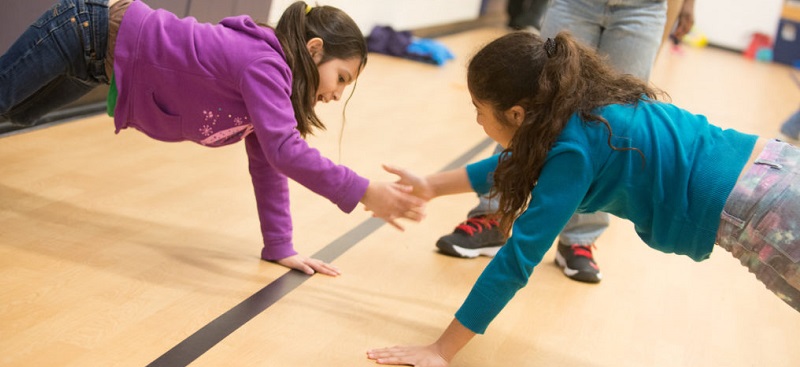School initiatives to enhance child development, behavior and learning.
Grab a device and you sit. Put it down and you get up and move around. Devices are increasingly being used as a socially acceptable form of child restraint in both home and school settings. Stopping a child from moving by handing them a device may prove convenient for the adult, but only in the short term. Children’s bodies and brains are designed to require movement in order to develop and grow. The long term consequences of early sedentary lifestyles are catastrophic, as evidenced now by epidemic levels of child obesity, sleep deprivation, and mental illness. With children moving less and less at home, the pressure is now on schools to provide more opportunities for classroom, gym and playground movement. This article provides background information on the benefits of movement for child growth and success, and offers schools a variety of tools and strategies to ensure sustainable futures for all children. Give kids the edge they need to succeed. Let them move.
Engaging in various forms of movement are research proven initiatives that optimize development, improve behavior, restore attention, and enhance learning in children (Ratey, 2008). Yet today’s technology obsessed children and youth are simply not moving enough, impacting negatively on not only their physical and mental health, but also on their ability to pay attention, learn, and achieve printing and reading literacy at school. While the cardiovascular impact of movement on reducing child obesity, diabetes, heart attack and stroke are well known, there are two other benefits of movement which improve literacy and learning which can be easily employed in education settings. These two types of movement build strong core and motor coordination impacting on improved printing, reading, and sports, as well as stimulate change in body energy states, enabling improved attention and learning.
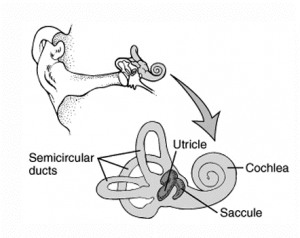 The vestibular system is a series of 3 fluid filled canals located on each side of the brain, and is activated with ‘off centre’ movement, such as rocking, jumping, side to side, or rotational movements. When a student’s body is off centre, the vestibular system sends messages to stabilizer muscle groups to activate, bring body back to centre, and thus strengthening core. As core stability precedes motor coordination of right to left, upper body to lower body, eye to hand, and eye to eye, off centre movement is essential for motor coordination needed for printing and reading literacy, as well as sports. Stimulation to the vestibular system also increases brain arousal enabling learning to take place, which is necessary for students who stay up doing sedentary activities such as watching TV or playing video games. In the classroom, teachers can help students ‘wake up’ their energy state by providing vestibular stimulation in the form of Hokki Chairs, wobble or balance boards, or running in place. In the gym and on the playground, equipment that allows off centre movement would be suspended devices that swing and/or rotate, slides, balance devices (different height rounds of wood, half buried tires), bouncy castles, or spinning discs or saucers.
The vestibular system is a series of 3 fluid filled canals located on each side of the brain, and is activated with ‘off centre’ movement, such as rocking, jumping, side to side, or rotational movements. When a student’s body is off centre, the vestibular system sends messages to stabilizer muscle groups to activate, bring body back to centre, and thus strengthening core. As core stability precedes motor coordination of right to left, upper body to lower body, eye to hand, and eye to eye, off centre movement is essential for motor coordination needed for printing and reading literacy, as well as sports. Stimulation to the vestibular system also increases brain arousal enabling learning to take place, which is necessary for students who stay up doing sedentary activities such as watching TV or playing video games. In the classroom, teachers can help students ‘wake up’ their energy state by providing vestibular stimulation in the form of Hokki Chairs, wobble or balance boards, or running in place. In the gym and on the playground, equipment that allows off centre movement would be suspended devices that swing and/or rotate, slides, balance devices (different height rounds of wood, half buried tires), bouncy castles, or spinning discs or saucers.
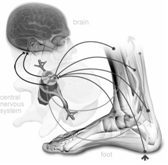 The proprioceptive system is activated with movement requiring resistance, also termed “heavy work”, such as pushing, pulling, lifting or carrying. 50 years ago children often were required to help with chores which not only provided a sense of belonging and importance, but also loaded their muscles and joints with resistance, resulting in an ‘energy dump’. Just as adults might go to the gym or dig in the garden to feel calm and relaxed, children also need to tax their proprioceptive system to release energy and get in the zone to learn, possibly even more so than adults. The body is energy, and when energy is restrained by being sedentary, while also being overstimulated by fast paced and violent media content, the body’s energy is imbalanced which can look like hyperactivity and/or aggression, or look like low arousal and/or boredom. In the classroom, teachers can help children balance their energy states by providing proprioceptive energy dumps in the form of slam balls, TRX Training Strapping, or exercises such as ‘plank’, push-ups, or tug-of-war. In the gym and on the playground, equipment that challenges and loads muscles would be climbing frames/walls, hanging bars or rings, jungle gyms, or obstacle course pylo blocks.
The proprioceptive system is activated with movement requiring resistance, also termed “heavy work”, such as pushing, pulling, lifting or carrying. 50 years ago children often were required to help with chores which not only provided a sense of belonging and importance, but also loaded their muscles and joints with resistance, resulting in an ‘energy dump’. Just as adults might go to the gym or dig in the garden to feel calm and relaxed, children also need to tax their proprioceptive system to release energy and get in the zone to learn, possibly even more so than adults. The body is energy, and when energy is restrained by being sedentary, while also being overstimulated by fast paced and violent media content, the body’s energy is imbalanced which can look like hyperactivity and/or aggression, or look like low arousal and/or boredom. In the classroom, teachers can help children balance their energy states by providing proprioceptive energy dumps in the form of slam balls, TRX Training Strapping, or exercises such as ‘plank’, push-ups, or tug-of-war. In the gym and on the playground, equipment that challenges and loads muscles would be climbing frames/walls, hanging bars or rings, jungle gyms, or obstacle course pylo blocks.
Following are a list of types of techniques and equipment which activate the vestibular and proprioceptive systems, which can be performed in classroom, gym or outdoor playground type settings to enhance child development, attention, and learning. For optimal attention, suggest allowing students 5 minutes of strenuous activity every 30 minutes to get their body energy in the zone to learn, prior to classroom instruction. More than 5 minutes may cause classroom chaos; less than 5 minutes is insufficient movement activity to attain benefit. Children and youth who are physically active in gym and on playgrounds, are less likely to have behavioral issues including meltdowns, tantrums, and aggression if allowed at least three 20 minute sessions per day. Secondary schools might consider a 45 minute session on treadmills, elliptical machines, or exercise bikes prior to starting the day. Technology overuse of TV, cell phones, and internet over 2 hours per day is proven to be causally linked to obesity, developmental delay, depression, anxiety, agitation, aggression, distractibility and inattention, and should be restricted for children and youth with attention and learning difficulties. Teachers might consider weekly Tech Talks for students where information is provided and discussion facilitated regarding technology overuse and addiction. Informational Fact Sheet, videos and resources can be located on Zone’in Programs Inc. website www.zonein.ca.
- Hokki Chairs (jmcdesigninteriors.com), “T” chairs (2” X 4”’s nailed together in a “T” shape), or therapy balls.
- Suspension training with TRX equipment (trxtraining.com).
- Calisthenics or yoga on gym mat on floor e.g. sit-ups, plank.
- Lye on floor facing partner, and blow/suck on straw to push ping pong balls across masking tape line, scoring “goal” when cross line.
- Tug of War using 4’ piece of rope with knot each end; excellent activity for students who are fighting; called a “Tug Off”.
- Volleyball with Nerf ball; use line of desks for “net”.
- Play games such as jumping jacks, running in place, Tour de France (using two desks for support, lift feet off ground and pedal in air), or ball over/under pass; could be played as competing teams.
- Work in standing – on chalkboards, easels, or at raised counter; can fabricate counter using plywood covered with counter surfacing (plastic, vinyl). Desks and tables restrict movement, and therefore limit learning.
- Chin-ups using either wall mount or door frame bar.
- Hand, desk, counter, chair, floor, or wall pushes.
- Work lying on floor propped on elbows.
- Fencing with foam noodles (usually used for swimming floatation).
- Wobble or balance boards.
- Bicep curls using old bicycle tubes; anchor with feet or place around desk legs.
- Climbing rope with knots every 1’ attached to ceiling mount.
- Exercise bike, elliptical, rowing or treadmill machine in corner of room; try garage sales or newsletter request to parents.
- Barstarzz training (barstarzz.com).
- Swing bar positioned under desk (dowel suspended with chain from desk).
Moving to Learn Equipment List
for Classrooms, Gym and Playground
| CLASSROOMS | |||||
| Equipment | Picture | Supplier | Quantity | Cost | Total |
| Hokki Chair 12” | 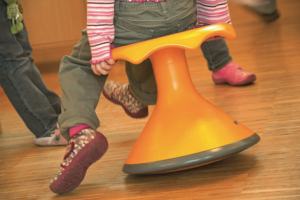 |
Jonathan Morgan Co. jmcdesigninteriors.com | $119.62 | ||
| Hokki Chair 15” | $124.43 | ||||
| Hokki Chair 18” | $138.26 | ||||
| Wobble Boards 36 cm |
 |
Fitness Depot www.fitnessdepot.ca |
$12.88 | ||
| Chin Up Bar (wall mount) |
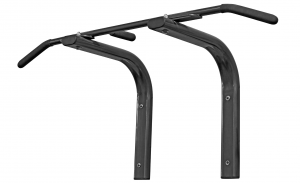 |
$69.99 | |||
| Ankle Weights 2.5 lb | 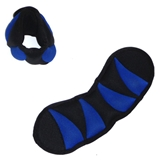 |
$9.88 | |||
| Ankle Weights 5.0 lb | 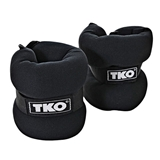 |
$13.88 | |||
| Slam Ball 12 lb | 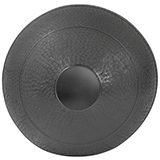 |
$19.88 | |||
| Slam Ball 15 lb | $22.88 | ||||
| Slam Ball 17 lb | $25.88 | ||||
| Slam Ball 20 lb | $27.88 | ||||
| Total Classroom Equipment | $ | ||||
| GYM | |||||
| Equipment | Picture | Supplier | Quantity | Cost | Total |
| Arousing Equipment (vestibular stimulation) | |||||
| Climbing SwRing | 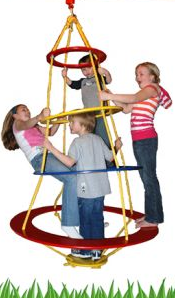 |
SwRing www.swring.com |
$695.00 | ||
| TheraGym Square Platform Swing | 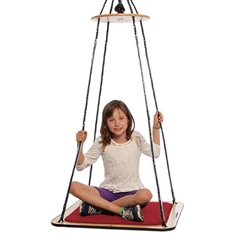 |
Flaghouse www.flaghouse.ca #40146 |
$509.75 | ||
| Airwalker Lycra Pod Swing | 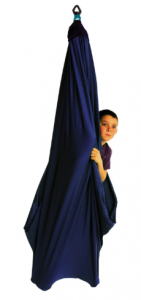 |
School Specialty www. schoolspecialty.ca #007937 |
$410.89 | ||
| Climbing Rope | 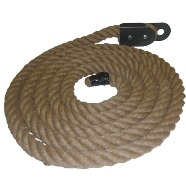 |
Fitness Depot | $118 | ||
| Hanging Chain (1000 lb strength) |
Chain lengths should be measured from top of device to mount bar, doubled, add 6” for double wrap around mount bar. | Local hardware store | 1 per suspended device | ||
| Safety Rotational Device Hanging Accessory (needed for 3 swinging devices) |
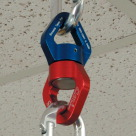 |
School Specialty #023715 |
1 per suspended device | $123.29 | |
| Carabiners – Lg, (1000 lb strength, screw lock closure) |
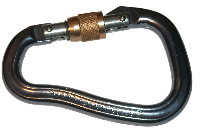 |
Local hardware store | 2 per suspended device | ||
| Rings with straps |  |
Fitness Depot | $38.00 | ||
| TRX Home Kit | 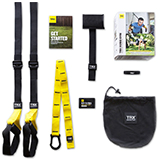 |
Fitness Depot | $178.95 | ||
| TRX Mount | 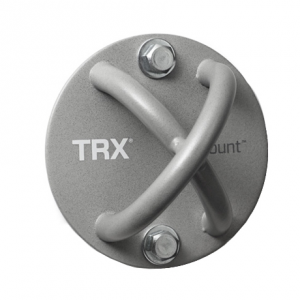 |
Fitness Depot | 1 per TRX strapping | $39.99 | |
| Agility Ladder
|
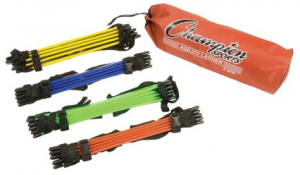 |
School Specialty #1441294 | 4/pkg | $91.19 | |
| Stability Pads (for obstacle course) | 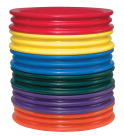 |
School Specialty #025430 | 6/pkg | $136.99 | |
| Go Go Balance Fun (for obstacle course) |
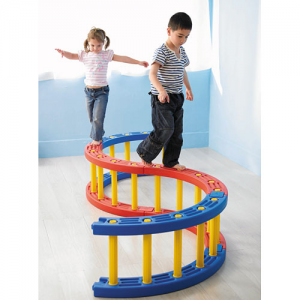 |
Scholars Choice www. scholarschoice.ca #119-p0013 |
$749.99 | ||
| Gonge Top Balance Disc | 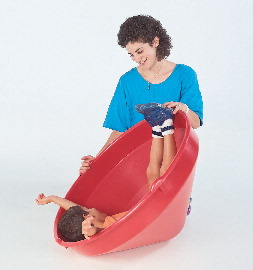 |
School Specialty #1478702 |
$115.09 | ||
| Balance Beam | 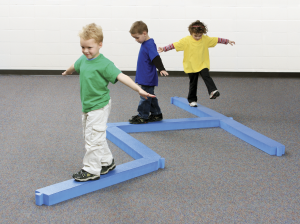 |
School Specialty #1328693 |
$342.99 | ||
| Grounding Equipment (proprioceptive stimulation) | |||||
| Climbing Scaler | 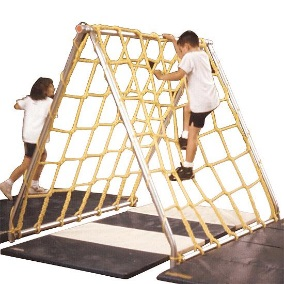 |
Flaghouse www.flaghouse.ca #14480 |
1 | $1607.50 | |
| Climbing Wall | 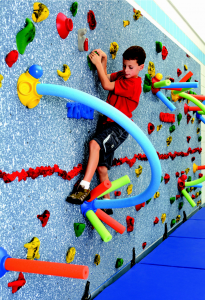 |
School Specialty www. schoolspecialty.ca #1393110 |
1 | $465.69 | |
| Scooter Boards Pull Boy 16” |
 |
School Specialty #1450035 | 6/pkg | $446.69 | |
| Paddles (for scooter boards) | School Specialty #1282645 | 6/pkg | $83.59 | ||
| Connecting Tunnel Set (for scooter boards) |  |
School Specialty #030030 |
6/pkg – get at least 2 for challenging obstacle course | $320.49 | |
| Scooter Board Ramp (vestibular, core) |
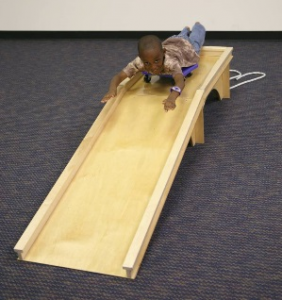 |
School Specialty #1366875 |
$412.29 | ||
| Calming Equipment (tactile stimulation) | |||||
| Body Sox – sm. age 3-5 |
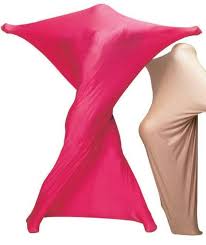 |
School Specialty #705469 |
$35.59 | ||
| Body Sox – med. Age 6-8 |
School Specialty #705472 |
$46.59 | |||
| Body Sox – large Age 9-12 |
School Specialty #008176 |
$50.69 | |||
| Cozy Castle (sensory hideout) | 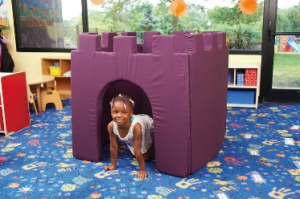 |
School Specialty #1486047 |
$421.89 | ||
| Total Gym $ | |||||
| PLAYGROUND | |||||
| Equipment | Picture | Supplier | Quantity | Cost | Total |
| Arousing Equipment (vestibular stimulation) | |||||
| Regular Swings | 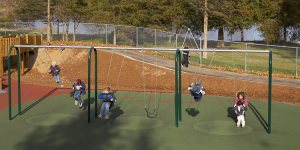 |
Landscape Structures www.playlsi.com |
|||
| Disc Swings (Oodle swing) |
 |
Landscape Structures www.playlsi.com |
|||
| Flywheel Spinner | 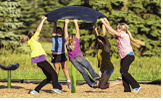 |
||||
| Eliptical | 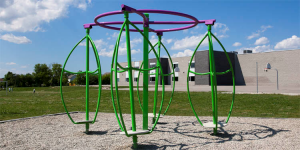 |
||||
| Merri-go-round | 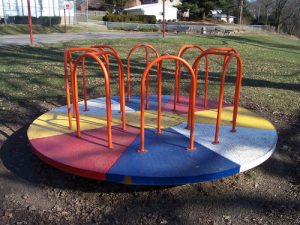 |
||||
| Grounding Equipment (proprioceptive stimulation) | |||||
| Rock or wood sculptures | 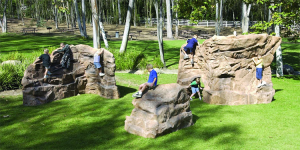 |
Build it yourself – or – Landscape Structures www.playlsi.com |
|||
| Lunar Blast Net Climber | 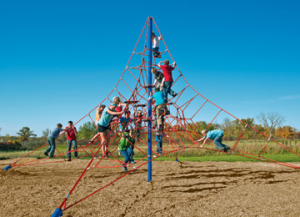 |
Landscape Structures www.playlsi.com |
|||
| FitCore Outdoor Exercise Equipment | 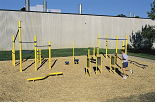 |
Landscape Structures www.playlsi.com |
|||
| Cardio Stepper | 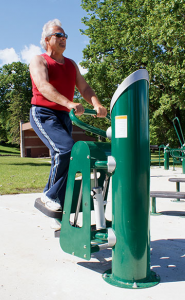 |
Landscape Structures www.playlsi.com |
|||
| Obstacle Course | 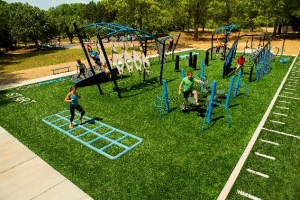 |
Build it yourself – or – Suttle Recreation www.suttlerecreation.com |
|||
| Barstarzz | 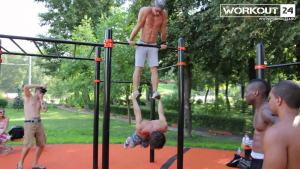 |
Barstarzz www.barstarzz.com |
|||
| Total Playground Equipment $ | |||||
| GRAND $ | |||||
Click here to print out the above Zone’in Moving to Learn Equipment List
Prepared by Cris Rowan, BScOT, BScBi, SIPT, AOTA Approved Provider
CEO Zone’in Programs Inc. and Sunshine Coast Occupational Therapy Inc.
6840 Seaview Rd. Sechelt, BC V0N3A4, 6048850986 p, 6048850389 f, 6047402264 c crowan@zonein.ca
www.suncoastot.com, www.zonein.ca, www.virtualchild.ca, www.movingtolearn.ca
